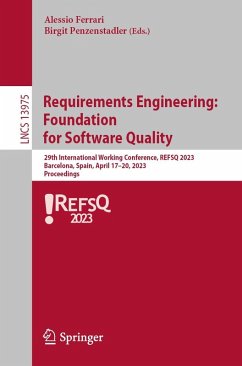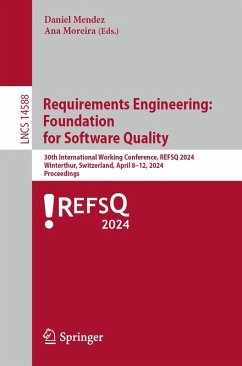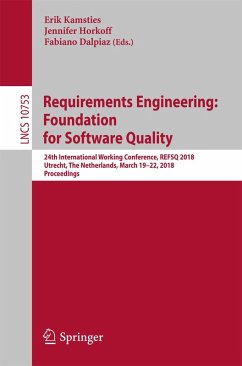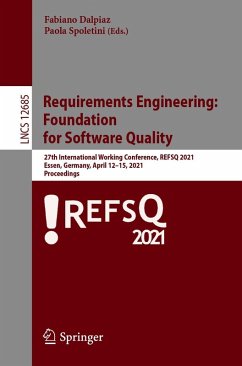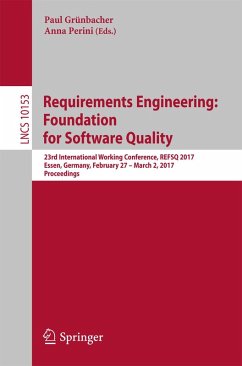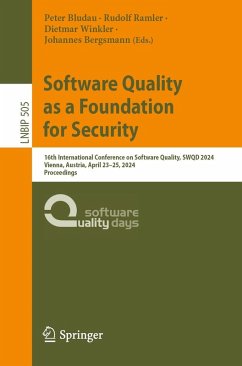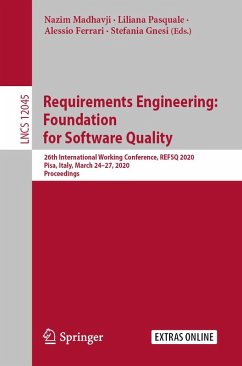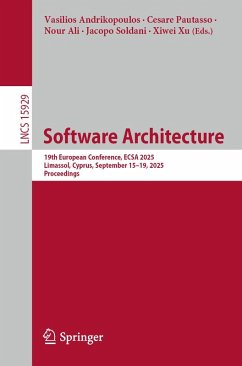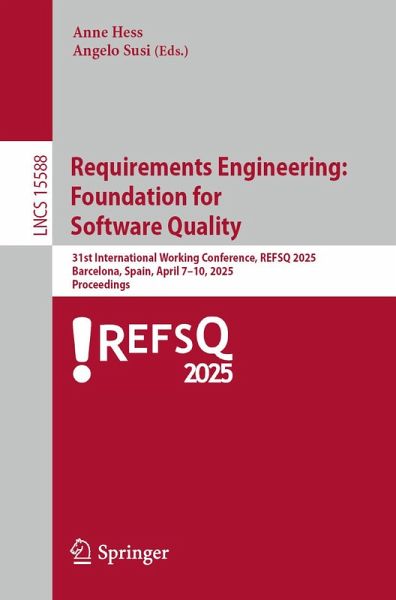
Requirements Engineering: Foundation for Software Quality (eBook, PDF)
31st International Working Conference, REFSQ 2025, Barcelona, Spain, April 7-10, 2025, Proceedings
Redaktion: Hess, Anne; Susi, Angelo
Versandkostenfrei!
Sofort per Download lieferbar
96,95 €
inkl. MwSt.
Weitere Ausgaben:

PAYBACK Punkte
48 °P sammeln!
This book constitutes the refereed proceedings of the 31st International Working Conference on Requirements Engineering: Foundation for Software Quality, REFSQ 2025, held in Barcelona, Spain, during April 7-10, 2025. The 21 full papers and 8 short papers included in this book were carefully reviewed and selected from 74 submissions. They were organized in topical sections as follows: Responsible RE; Crowd and Large-Scale RE; Requirements Modeling; Requirements Elicitation and Analysis; Participatory RE; RE for Safety-critical and Autonomous Systems; and Requirements Quality Assurance.
This book constitutes the refereed proceedings of the 31st International Working Conference on Requirements Engineering: Foundation for Software Quality, REFSQ 2025, held in Barcelona, Spain, during April 7-10, 2025.
The 21 full papers and 8 short papers included in this book were carefully reviewed and selected from 74 submissions. They were organized in topical sections as follows: Responsible RE; Crowd and Large-Scale RE; Requirements Modeling; Requirements Elicitation and Analysis; Participatory RE; RE for Safety-critical and Autonomous Systems; and Requirements Quality Assurance.
The 21 full papers and 8 short papers included in this book were carefully reviewed and selected from 74 submissions. They were organized in topical sections as follows: Responsible RE; Crowd and Large-Scale RE; Requirements Modeling; Requirements Elicitation and Analysis; Participatory RE; RE for Safety-critical and Autonomous Systems; and Requirements Quality Assurance.
Dieser Download kann aus rechtlichen Gründen nur mit Rechnungsadresse in A, B, BG, CY, CZ, D, DK, EW, E, FIN, F, GR, HR, H, IRL, I, LT, L, LR, M, NL, PL, P, R, S, SLO, SK ausgeliefert werden.



